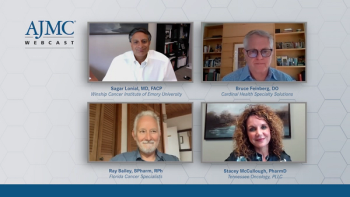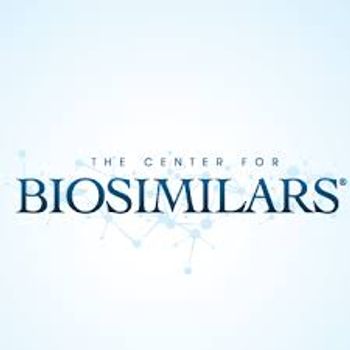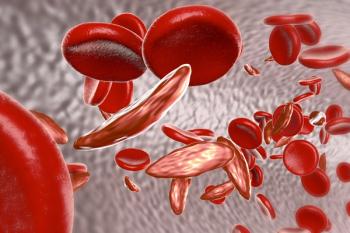
Kidney failure is one of the expensive conditions in health care, but new results from the DAPA-CKD trial could change the equation in favor of prevention.

Kidney failure is one of the expensive conditions in health care, but new results from the DAPA-CKD trial could change the equation in favor of prevention.

At the heart of a defensive strategy against ransomware and other cybersecurity risks is a cloud-based approach to protecting data.

Despite progress from disease-modifying antirheumatic drugs, there is still a far greater long-term risk of undergoing total knee and hip arthroplasties in patients with rheumatoid arthritis.

The report explored the use of intravenous lidocaine in a hospital that expanded its use beyond postoperative gastrointestinal surgery.

Two days after the CDC changed its guidance on who should get tested for SARS-CoV-2, the virus that causes coronavirus disease 2019 (COVID-19), HHS said the move was not politically motivated.

Current therapeutic options for multiple myeloma and best practices in dispensing medications throughout the COVID-19 pandemic.

The second of a 5-part webinar series examining value assessment in the COVID-19 era hosted by ISPOR and the Innovation and Value Initiative (IVI) will explore whether the methods on which health economists have relied are up to the task or in need of improvement for the pandemic era.

Adherence to multiple sclerosis (MS) therapy is linked with improved clinical outcomes, better quality of life, lower health care costs, and other benefits.

Through the partnership between Innovaccer and Emtiro Health, data utilization will work to delineate and address social aspects known to affect the health of populations nationwide, said Kelly Garrison, CEO at Emtiro Health, and Paul Grundy, MD, chief transformation officer at Innovaccer.

In individuals with type 2 diabetes and comorbid obesity, the metabolic benefits of gastric bypass surgery and diet were similar and related to weight loss itself, but it had no clinically important effects independent of weight loss.

Patricia Salber, MD, MBA, of The Doctor Weighs In, and Scott Hayworth, MD, president and CEO of New York-based CareMount Medical, discuss delivering preventive care and managing chronic illnesses during the coronavirus disease 2019 (COVID-19) pandemic.

The challenges of complying with payer mandates in biosimilars were discussed in a webinar sponsored by The American Journal of Managed Care® and The Center for Biosimilars®.

Screening women aged 40 to 49 years for breast cancer reduced mortality by 25% in the first 10 years compared with waiting until at age 50 years and older, which is the common practice in the United Kingdom.

The risk of orthopedic surgery has declined for patients with rheumatoid arthritis (RA) over the course of decades, but the same trend has not occurred for patients with psoriatic arthritis.

In individuals with type 1 diabetes (T1D), bacterial infections are associated with an increased risk of coronary heart disease, according to a study published in the Journal of Internal Medicine.

Among patients with Parkinson disease aged 60 years and younger with early motor complications, deep brain stimulation was found to provide significant improvements in social, occupational, and psychosocial function.

Yale New Haven Hospital’s reorganization of its sickle cell disease program led patients to report feeling better off and needing fewer hospitalizations. However, the change left some with the disease still feeling unsatisfied.

Researchers found that patients with idiopathic pulmonary fibrosis (IPF) are at increased risk of developing several forms of cancer compared with the general population.

Just like in clinical trials, a real-world analysis of patients with psoriatic arthritis who were treated with secukinumab achieved minimal disease activity, as well as other improvements.

Prevention and early screening efforts need to be stepped up for patients with acute heart failure who contract pneumonia while hospitalized.

Patricia Salber, MD, MBA, of The Doctor Weighs In, and Sandeep “Bobby” Reddy, MD, an oncologist at Harbor-UCLA Medical Center and chief medical officer of NantHealth, discuss the clinical care of patients with cancer in the age of COVID-19.

The coronavirus disease 2019 (COVID-19) vaccines that are leading the pack are utilizing a new vaccine technology that has never been approved for human use by the FDA. As a result, there are a lot of unknowns.

Evidence may support a greater comorbidity burden among patients with heart failure with preserved ejection fraction (HFpEF) or reduced ejection fraction (HFrEF), although this finding was shown to be worse among women with HFpEF.

The race for a coronavirus disease 2019 (COVID-19) vaccine is one of the most urgent public health challenges, with multiple vaccine candidates entering phase 3 trials and case counts around the world steadily climbing. MJH Life Sciences™ will host a free webinar with the top minds in infectious disease, virology, and vaccinology to discuss the latest trial information on vaccines.

Transferring from pediatric to adult care can result in difficulties for patients with childhood-onset systemic lupus erythematosus.

259 Prospect Plains Rd, Bldg H
Cranbury, NJ 08512
© 2025 MJH Life Sciences®
All rights reserved.
